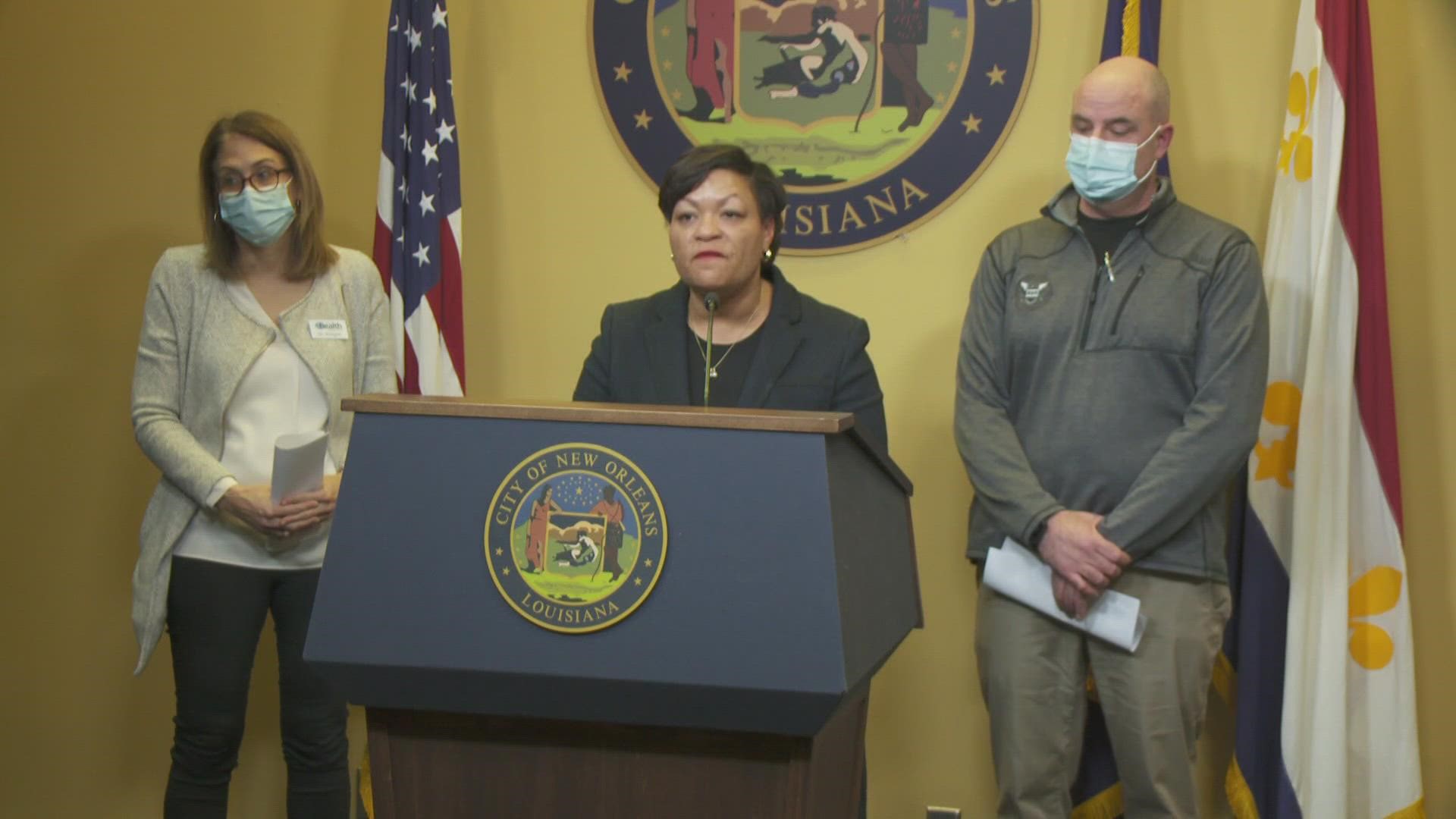NEW ORLEANS — The city of New Orleans is proud of its 78 percent vaccination rate among adults but they are pushing boosters for adults and vaccinations for children as major events are on the horizon but concerns over the new Omicron variant are rising.
There is no indication that Omicron is in the United States, much less Louisiana, but City Health Director Dr. Jennifer Avegno said more answers should be coming soon, perhaps within a week, to several key questions about the new variant.
- Is it more transmissible?
- Does it make people sicker?
- Can it evade the vaccines we currently have?
Mayor LaToya Cantrell championed the city's vaccine mandate and mask wearing as a reason that New Orleans has fared well the past few months in the COVID battle.
Travel bans from some African countries go into effect Monday after a new, concerning COVID-19 variant has emerged. The Omicron variant was first detected in South Africa this month and health experts are now rushing to learn more about it.
The Netherlands and Australia are some of the latest countries to report cases of the new variant. Omicron was classified as a 'variant of concern' by the World Health Organization Friday.
"This label is typically applied by the WHO when a particular strain is transmissible or able to evade public health measures," said Dr. Fred Lopez, an infectious disease expert with LSU Health.
The World Health Organization said it appears that COVID hospitalizations are rising in South Africa where the variant was first detected, but it's too soon to say if Omicron is to blame. It's also too soon to say how easily this variant spreads or whether it causes more severe illness than other variants.
"It does appear based on early data, it is more transmissible and may carry with it an increased risk of re-infection compared to other variants," Dr. Lopez said. "Whether it causes more severe disease or not, there is just too little data to help answer that question definitively."
Health experts are currently studying how effective the vaccines are against this new variant.
"We don't know," Dr. Lopez said. "The majority of hospitalized patients in South Africa are among those who haven’t gotten immunized, so it does appear the vaccines are still effective."
According to the CDC, no cases of the variant have been identified in the U.S.
"Even though the variant hasn’t been seen yet in the United States, it may already be here and if it isn’t already here, it will at some point arrive here and I think the real challenge will be are we prepared for it," Dr. Lopez said.
Starting Monday, the U.S. plans to ban travel from South Africa and seven other countries.
Sunday, the World Health Organization Regional Director for Africa, Dr. Matshidiso Moeti, released a statement urging countries not to impose travel bans which she worries could place a heavy burden on livelihoods.
"With the Omicron variant now detected in several regions of the world, putting in place travel bans that target Africa attacks global solidarity," Dr. Moeti said.
Dr. Lopez believes the emergence of this variant should encourage a push for vaccine equity across the world.
"This is a world wide issue and if we continue to have countries to have low vaccination rates, the potential for this strain and other strains to emerge will continue to occur," he said. "What we really need to do is to continue to promote vaccinations in order to prevent infections."
The CDC is working on a surveillance system to quickly identify Omicron if it emerges in the us.

